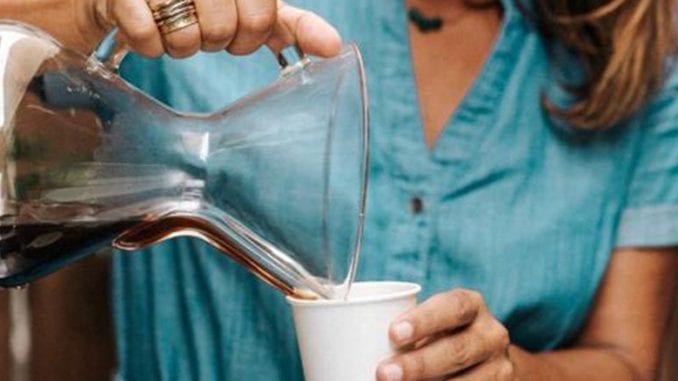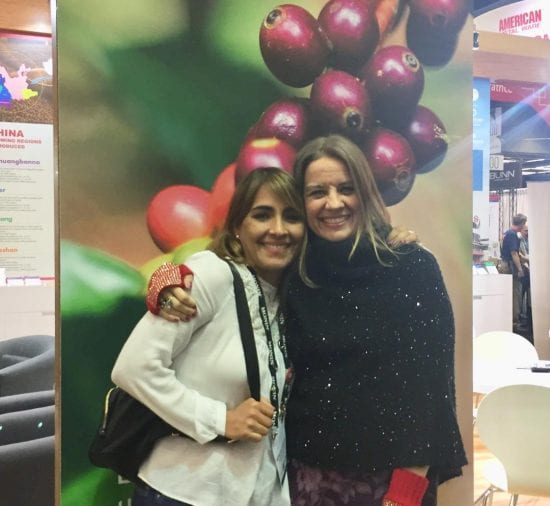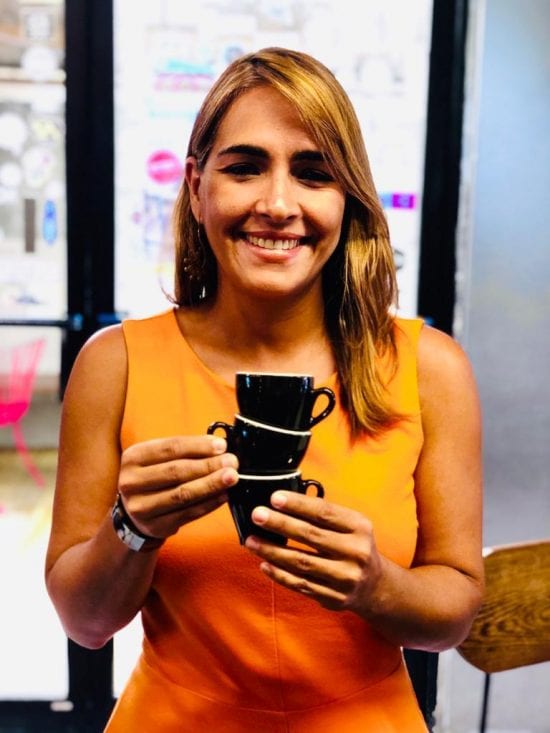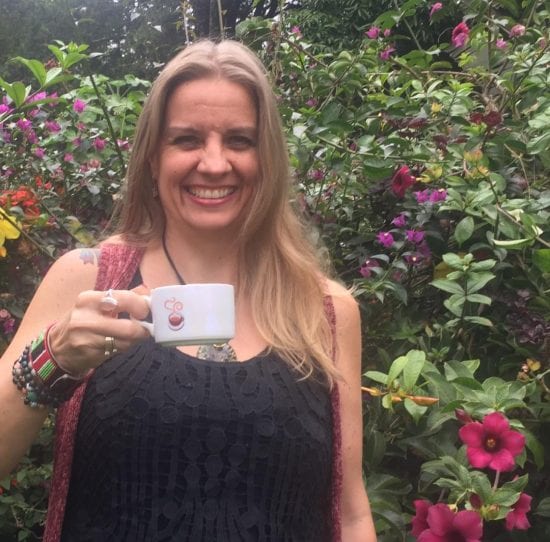
We conclude our interview with Rebecca Atienza of Hacienda San Pedro in Puerto Rico.
BY ERIKA KOSS
SPECIAL TO BARISTA MAGAZINE ONLINE
Cover photo courtesy of Rebecca Atienza
From the editor: Yesterday we began a “follow-up” interview with former Barista Magazine cover star Rebecca Atienza, who runs several cafés in Puerto Rico that sell coffee from her family farm (both called Hacienda San Pedro). Today we finish the conversation about recovering from two hurricanes and running a business as a busy, strong mother of two.
Erika Koss: How did Hurricane Maria affect your ability to sell coffee in your cafés, or plan for the future? Since all your beans came from that harvest, how did this affect your supply?
Rebecca Atienza: After the first weeks of survival after Hurricane Maria, we had to make serious decisions. We decided to use all the coffee we still had already harvested only for the shops. So that meant no more web page, no more retail sales, no more export sales, which up to that point was really thriving. We had so little coffee in reserve that we even had to stop selling our 1-lb. coffee bean bags in the shops. All the coffee was just for preparation in the espresso machine. It was incredibly hard to keep the business alive just selling cups of coffee.

And all this while you’re also cleaning up the farms’ hurricane damage and replanting new seeds. How long did all this recovery take?
Starbucks invested a lot of efforts in the rebuilding for all the farmers, donating 1 million seeds to the recovery efforts. Even last year, the roads were still in very bad condition. But finally after two years, Hacienda San Pedro had enough from a new crop, and we also presented new packaging. To us, this all meant a new hope, a new beginning, a new refresh—and the feeling that now we are rebuilding to create a new story.
But part of what astonishes me is that I know this is not the first time your family has rebuilt after total devastation from a hurricane. You and I have talked in the past about Hurricane Georges, which struck Puerto Rico on September 21, 1998.
Yes, that was another nightmare I can never forget. Then I was a sophomore at the University in San German, where I was studying Microbiology. My classes were canceled in time for me to make the drive home two hours east to our farm in Jayuya. But when I left university on September 15, I didn’t know that more than a month would pass before classes resumed.
These hurricanes have certainly been devastating to all Puerto Rican farmers. What are some other challenges for you as a businesswoman?
Working in this business from farm to cup is so unique. I’m always proud to tell my customers, “This is the coffee my dad produced.” Our business is valued here in Puerto Rico since not every coffee shop owner can say that they are the producers of the coffee. Besides all the weather challenges, there are coffee diseases, and it’s hard to find the needed hands to pick the coffee. At the shops, we try to constantly innovate, finding ways to be better and do better, provide good jobs for our 25 café employees, and be the best we can be in San Juan.

What are some of your joyful moments as a woman and mother in coffee?
As a single mom of two kids, it is harder to work in this business. Fortunately, my two kids are my biggest fans. They talk about the shops, and they want to work in them one day. They wear our T-shirts, use the bags, and are proud of what I am trying to accomplish. I’m also lucky to have my mom helping me, so it can be a little less heavy to deal with both my kids and my business. I love being able to travel, and I know I always have the support of my family.
And sometimes you have world famous Puerto Ricans coming to your café, asking to highlight you in their films!
Yes! Last year Lin-Manuel Miranda asked to meet me in my café because he was doing a series of documentaries about Puerto Rico. He chose to feature Hacienda San Pedro in one episode. It is a special film to us, especially since he also interviewed my grandfather, who died last year. That is the last video we have of him.
What keeps you going after all these challenges?
After I finished my university degree, I worked in the pharmaceutical industry for six years. At that point, I didn’t see a future in coffee for myself. But then over time, Puerto Rican coffee became so much more than just a bean. It embodies our national pride. Since my siblings and I are the fourth generation, it’s our family legacy. This is what I’ll keep fighting for as long as I can so my children, as the fifth generation, can also drink this “Cup of Hope.”

ABOUT THE AUTHOR
Erika Koss’ coffee career began in 1995 as a barista in San Diego. Now living in Nairobi, Kenya, she is a Research Associate at the University of Nairobi, a Ph.D. candidate in International Development Studies at Saint Mary’s University in Halifax, Nova Scotia, and an Authorized SCA Trainer. Follow her on Instagram @aworldinyourcup.

